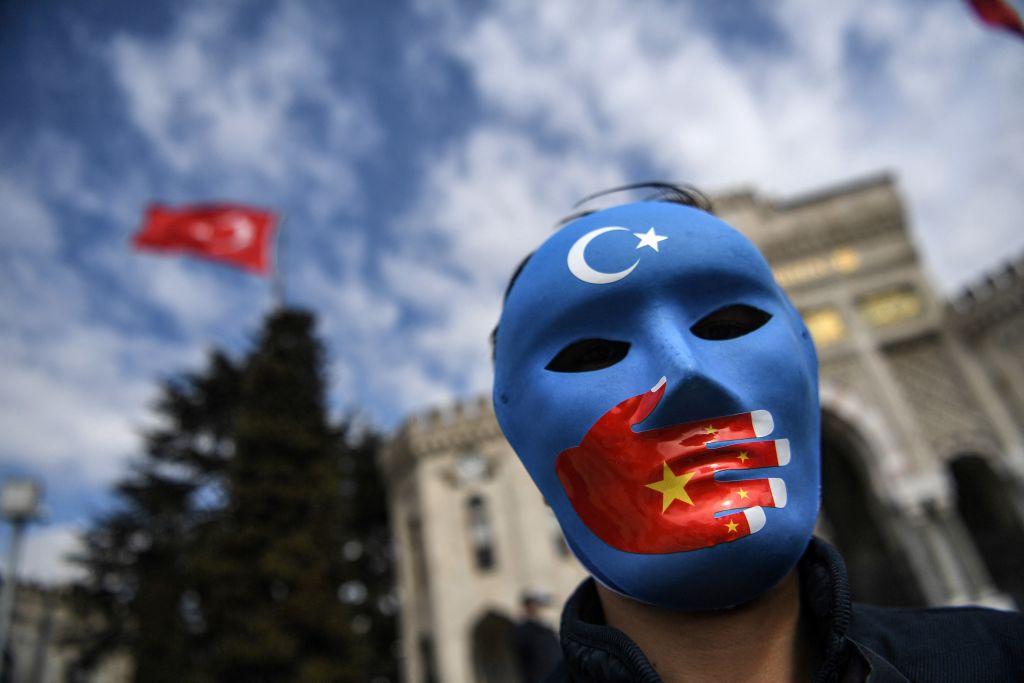A new report from the Australian Strategic Policy Institute (ASPI) has found the Chinese Communist Party is looking to influence international perceptions of the Chinese regime’s policies in the Xinjiang region through social media.
The campaign, which has featured videos from Uyghurs saying they’re happy with their life in the Xinjiang region, promoting Xinjiang as a tourism destination, and praising Beijing’s policies on the Uyghur people, have all been linked with the hashtag #StopXinjiangRumors on Twitter.
The study revealed that a large number of inauthentic accounts, including some used to share pornographic material, are now being used to help with the CCP’s whitewashing efforts in multiple languages.

Twitter attributed both datasets to the Chinese regime, with the latter specifically linked to a company called Changyu Culture, which is connected to the Xinjiang provincial government. The #StopXinjiangRumors hashtag features prominently in both datasets.
- Flooding the net to “bury” critical content on platforms such as YouTube.
- Promotion of supporting “testimonials” from Uyghurs discussing their “happy” lives in Xinjiang and denouncing allegations of human rights abuses.
- Promotion of content from Western social media influencers which favour the CCP’s narratives on Xinjiang.
- Active interaction between network accounts and the accounts of CCP officials, such as the Ministry of Foreign Affairs spokesperson Hua Chunying.
- Cross-platform activities with videos from YouTube, Douyin (the Chinese version of TikTok) and links to the CCP’s state media.
- Use of repurposed spam accounts, some of which posted on Twitter about Korean TV dramas and porn material before, as well as potential use of automation.
This dataset contained a large number of rebuttals to international criticisms of the CCP’s policy in Xinjiang and featured phrases commonly seen in state propaganda, such as “Xinjiang is a wonderful land.”
![The Jieleixi No.13 village mosque with slogans “Love the [Chinese Communist] Party, Love China,” in Yangisar, south of Kashgar, in China’s western Xinjiang region, on June 4, 2019. (Greg Baker/AFP via Getty Images)](/_next/image?url=https%3A%2F%2Fimg.theepochtimes.com%2Fassets%2Fuploads%2F2021%2F05%2F10%2FGettyImages-1148084956-600x400.jpg&w=1200&q=75)
“As we’ve noted, the network was active on issues related to health, such as life expectancy and population growth,” the authors stated in the report. “CCP policies in the region are framed as counterterrorism responses as a way of attempting to legitimise actions, while negative information and testimonies of abuse are simply denied or not reported.”
The second dataset, CNCC, is linked to Changyu Culture, a company connected to the Xinjiang provincial government and funded to create videos depicting Uyghurs as supportive of the CCP’s policies in Xinjiang. This network contained a large number of repurposed spam and porn accounts. It also had a focus on targeting former U.S. Secretary of State Mike Pompeo, who was vocal in his criticism of the CCP.
Twitter gave advanced access to the two data sets to the authors of the report, although it hasn’t released the methodology by which the dataset was selected.
“The dataset may not represent a complete picture of Chinese state-linked information operations on Twitter,” the authors stated in the report.
ASPI is a defence and strategic policy think tank founded by the Australian Government for ideas on Australia’s defence, security, and strategic policy choices.




